Drone Focus – Unmanned Systems for the Bundeswehr
The demand for unmanned aerial vehicle systems – drones or UAVs (Unmanned Aerial Vehicles) – for military requirements is steadily increasing. They represent an enhancement to the capability mix of the German Armed Forces. When the name Elbit Systems Deutschland is mentioned, the military customer can be sure: As a system house for high-performance drone systems, the Ulm-based company has made a name for itself as a partner to the armed forces. At the location in Ulm, Elbit Systems Deutschland has a solid foundation to further advance the development and production of advanced technologies. In addition, maintenance is to be ensured throughout the entire product life cycle. Thanks to the competencies brought in here, new requirements can be addressed and accompanied by a sustainable concept of intensive cooperation.
wt spoke with the Managing Director of Elbit Systems Deutschland, Thomas Nützel, about system solutions. Nützel emphasizes that Elbit Systems Deutschland sees itself not only as a supplier, but also as a service provider and supporter of the military, which must be equipped with the best technologies available on the market for its safety. The interview with Mr. Thomas Nützel was conducted by Volker Schwichtenberg, CEO, Mönch Verlagsgesellschaft mbH.
wt:
Elbit Systems Deutschland considers itself a partner of the German armed forces. How can we imagine the company in the second year of the Corona crisis – and perhaps also in the further course of the first half of 2022?
Thomas Nützel:
Elbit Systems Deutschland is, as you correctly say, a proven partner of the German Bundeswehr. With strong value creation through our own development, production and maintenance here at the location in Ulm, the focus of our activities is on the German market. We see ourselves as a system house with complete turnkey solutions, which will be further strengthened in the coming years thanks to an expanded product portfolio.
I would like to recall that Elbit Systems Deutschland emerged from TELEFUNKEN RACOMS and benefits from core competencies that have been customized to the needs of the German Bundeswehr over many years and decades. Today’s activities, however, have long since extended beyond the originally addressed market segments and the initial product spectrum. We are continuously expanding our product range and know-how in the years ahead. In this context, we are primarily addressing the increasingly important areas of cyber security, sensors, command and control systems, electronic warfare and autonomous platforms.
combat management and autonomous platforms – UAVs or Unmanned Surface Vehicles (USVs) such as Seagull and Unmanned Ground Vehicles (UGVs) such as Probot and Iris. I would like to emphasize that Elbit Systems Deutschland will sustainably meet the changing requirements of the German armed forces and security authorities by consistently continuing its activities in the segments of electro-optics, radio communication and protection, which are in high demand. That is our mission.
wt:
What is the importance of the Bundeswehr as a customer?
Thomas Nützel:
Today, the Bundeswehr is undergoing a process of reorientation toward national and alliance defense. This involves supplementing the crisis response and preparedness activities that have been increasingly undertaken since the early 1990s with NATO’s own capabilities and capacities. However, it is also important to consider threats that continue to emanate from non-state actors. The entire spectrum of tasks must be underpinned by the latest technologies and capabilities in order to ensure that the forces can act with a high degree of assertiveness and are capable of survival at any time and in any place. Unmanned aerial vehicle systems are without doubt part of this.
However, what concerns us these days, is the fact that the Bundeswehr is under pressure in the run-up to VJTF 2023. Over a small period of time, many legacy systems will need to be replaced and new capabilities and capacities created. This will carry over to the next two target dates – VJTF 2023 and VJTF 2031. Many of the systems and platforms in use since the 1990s and 2000s have obsolescence and will not meet future requirements. Elbit Systems Deutschland supports the Bundeswehr as a competent system supplier to close the capability gaps with modern system solutions.
wt:
How should we understand this process, especially of UAVs, which is gaining more and more momentum?
Thomas Nützel:
Your question confirms a course of development that will significantly change the face of our armed forces in the years ahead. UAVs are already considered indispensable for seamless reconnaissance in all operational mission scenarios. Tactical UAV systems – whether fixed-wing aircraft such as our Skylark I-LEX or inconspicuous VTOL drones such as our MAGNI – perform an important information, warning and protection function for the armed forces in action. Equipped with powerful reconnaissance sensors, they are suitable for surveillance tasks in urban terrain or can contribute to near-real-time situational awareness, target and impact analysis, surveillance of geographically limited areas and reconnaissance in the electromagnetic spectrum.
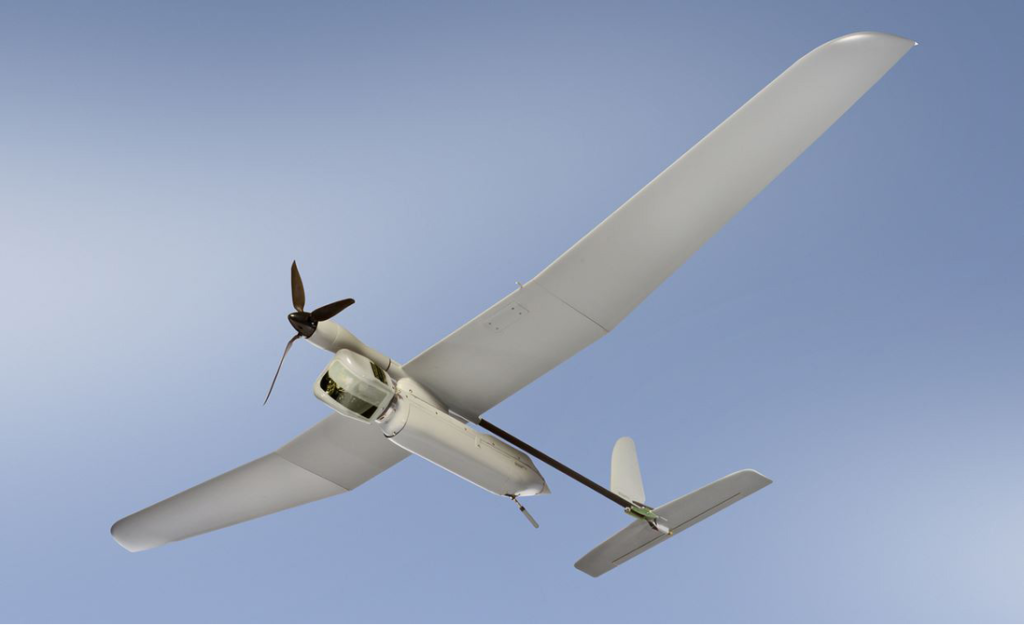
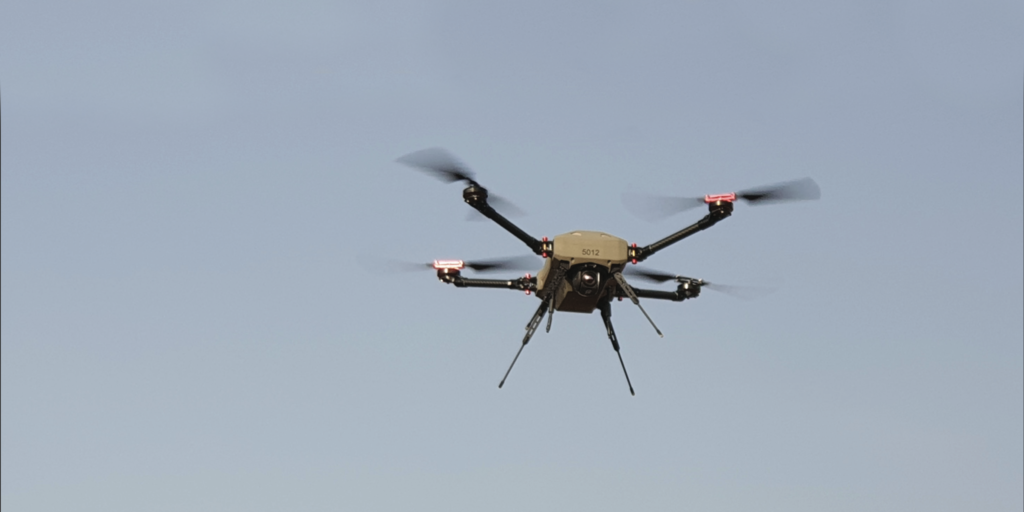
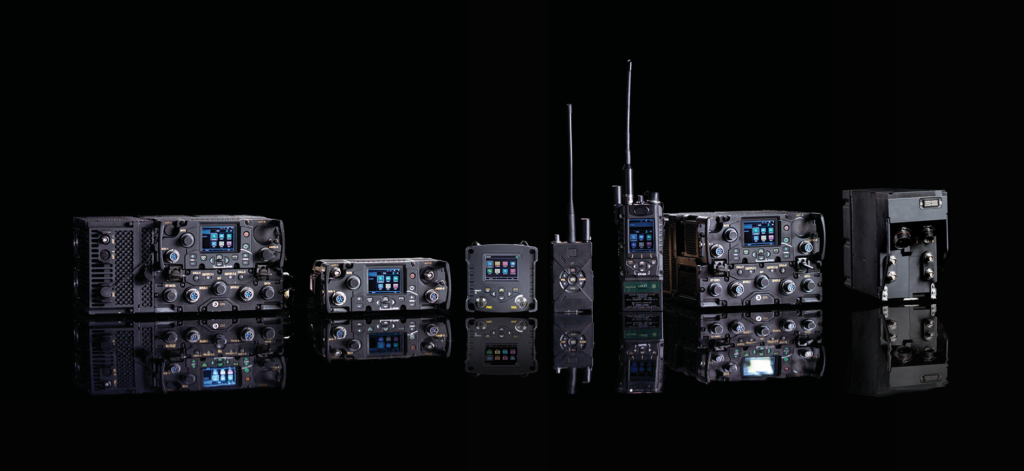
I would like to point out the consistent further development of our Skylark family and emphasize that it enables ground forces to conduct undetected reconnaissance from the air during the day and at night. The reconnaissance data can then be distributed accordingly in real time via our E-LynX™ radio family in the network (“tactical routing”). This makes this system solution a critical component for forces on the move, because it ultimately makes it possible to sustainably shorten the “sensor-to-shooter cycle.” That’s what matters.
wt:
The Unmanned Systems market segment is served by a number of other suppliers in Germany and Europe. How do you assess your company’s chances in the coming years of positioning itself in this environment with orders and establishing itself with its own innovative products and services?
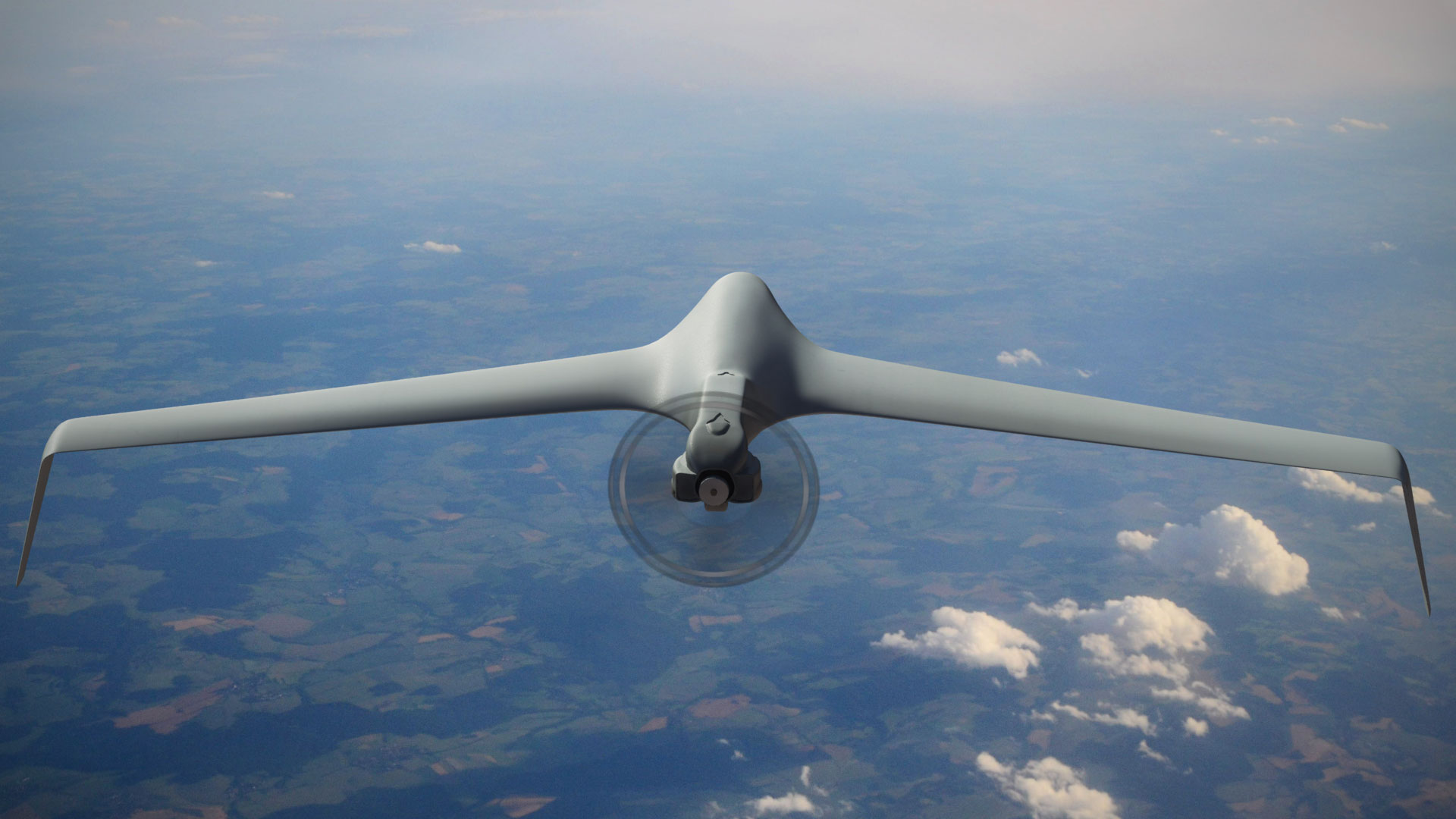
Thomas Nützel:
The competences of Elbit Systems Deutschland in the field of unmanned systems – from UAVs to UGVs – are undisputed. In the field of fixed-wing UAVs, we really do not need to hide: Our latest product development Skylark I-LEX, which is part of a whole family of now mission-proven fixed-wing UAVs, scores especially in the field of multispectral reconnaissance, i.e. the equipment with different camera systems. This also applies to our “large drone” Hermes 45. Compared to other systems, it has a long standing time of up to 22 hours in the operational area. In fact, the presence of many suppliers in the competitive UAV market cannot be denied. In Germany, we appear as a provider with years of experience. Only a few can claim that.
wt:
According to observers of the scene, UAVs will also support one of the special roles of maritime forces in the longer term, which is the reconnaissance and surveillance of vulnerable coastal sea areas that prohibit the use of manned submarines. Even the use of submarines is conceivable. What is your assessment?
Thomas Nützel:
The range of UAVs offered by Elbit Systems Deutschland includes various autonomous and semi-autonomous VTOL solutions and fixed-wing aircraft for reconnaissance, detection and effect in action radii from 10 to 800 kilometers. We consider the maritime operational area in a special way. Because, as you rightly say, UAVs have become an important part of handling modern security challenges. They will continue to grow in strategic, tactical and operational importance in the future.
However, it would be fatal if the German Navy were to think in only one direction. The K130 corvette is designed to be able to deploy UAVs. This capability requirement is stipulated in the contract. In the absence of sufficient capability, the Navy must consider options and focus on procuring a variety of drone systems: Helicopter and fixed-wing drones for corvettes and task group supply ships, and underwater drones (Unmanned Underwater Vehicles; UUVs) for submarines and maritime special operations forces. This is the only way it can address the future maritime theater of operations with its unpredictable threats.
The digitization of the operational environment plays a decisive role for maritime forces. The latest technologies are designed to improve the forces’ responsiveness as well as their flexibility and interoperability. The interaction of radio communications, optical and optronic reconnaissance as well as manned and unmanned systems are key components for generating information superiority for the own forces – especially in the maritime environment. Reconnaissance aircraft – whether manned or unmanned – are undoubtedly part of this. With the Hermes 900 system solution, Elbit Systems Deutschland offers an unmanned platform that guarantees the requirements of maritime forces in the long-range environment over long periods of time.
The German Navy’s need for unmanned platforms is unquestionable. In particular, applications in mine countermeasures and close-range reconnaissance are to be considered. Elbit Systems Deutschland offers the Seagull™ drone for the requirements outlined above. It was already introduced more than five years ago for maritime surveillance and reconnaissance tasks as well as for anti-submarine warfare and mine countermeasures. For the area of mine countermeasures, the Seagull drone demonstrated its capability for unmanned mine hunting during the “Belgian North Sea MCM Trials 2017” in marginal weather conditions of 6-7 Beaufort wind and sea state 5-6. Our fixed-wing Skylark-C drone, which can land on the water surface, can be taken on board. In addition, it can be perfectly integrated into the emerging needs of the German Navy. This opens up very interesting possibilities in a multistatic sub-hunting scenario not only of several drones, but certainly also in conjunction with manned naval units.
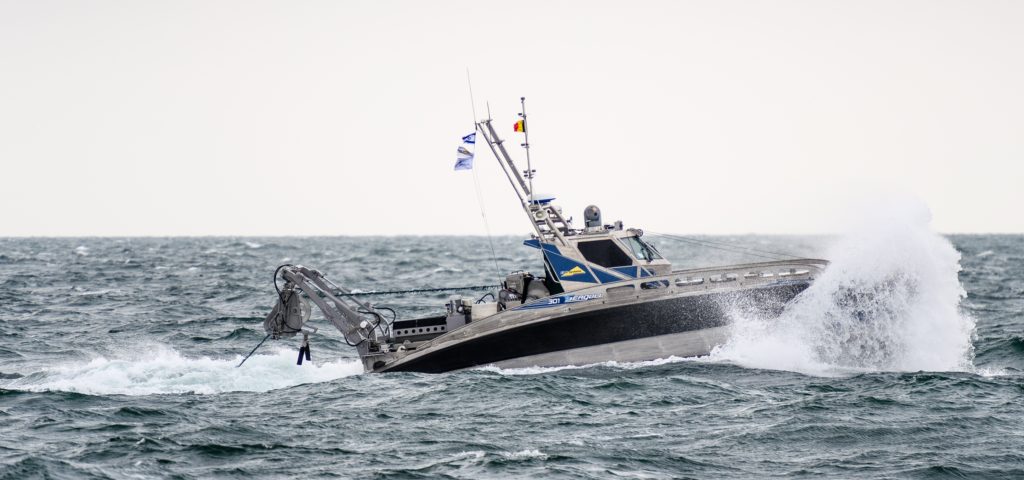
wt:
Now the demand for drones – even in the phase of the possible addition of further systems – is very manageable. Will Elbit Systems Deutschland be involved here with a product solution?
Thomas Nützel:
We address the maritime application space for our UAV and USV solutions. A submarine-launched drone is certainly one of them. This capability, which was once cited as an urgent need, has led us in Ulm to realize that we are pulling out all the technical and technological stops to be able to present the Bundeswehr with a viable product solution in the future. Thanks to our affiliation with an internationally active group, it is a matter of concern for us to serve precisely such new capabilities. Of course, this should also be an advantage for the Bundeswehr.
In the field of maritime drones, for example, we offer solutions that are world leaders in terms of their technical capabilities. And at prices that can hold their own against the competition. However, we also see potential with German customers, particularly in the area of electro-optical payloads. The Heron TP UAV system selected by the German armed forces will be equipped with such payloads to meet long-range requirements. And here, with cutting-edge technology, we would like to help ensure that the Navy can also perform its duties with the best possible equipment.
Finally, I would like to emphasize once again: The Bundeswehr is the most important customer for Elbit Systems Deutschland. In Ulm and recently also in Koblenz and Berlin, we have sales organizations specially geared to the requirements of the Bundeswehr and are available as local contacts.
wt:
Mr. Nützel, thank you very much for the interesting interview.
About Thomas Nützel
Thomas Nützel, born on July 6, 1962, is CEO of Elbit Systems Deutschland in Ulm. Previously, he was Managing Director of TELEFUNKEN RACOMS GmbH, which was reorganized in 2020. After studying communications engineering in Coburg, he held management positions at Siemens Sicherheitstechnik (Unterschleißheim), Dornier (Friedrichshafen) and EADS (Ulm).
More information about Thomas Nützel can be found in the Bundeswehr and Defense Industry Handbook 2020, page 702.


